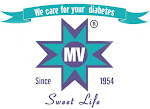Why people with diabetes should avoid alcohol.
- Maintaining ideal weight is a very important task for good control of diabetes for people with Type 2 diabetes. Therefore the less alcohol they consume, the better they can control their weight.
- Alcohol increases the appetite so people with diabetes may tend to overeat and this affects their efforts to keep blood glucose under control.
- Alcohol can influence a person’s choice of food leading to consumption of the wrong kind of food.

3. Alcohol has a high caloric content and not many other nutrients. This is not really a good thing for people counting calories.
- Alcohol tends to lower blood glucose. This is of great importance to people with diabetes who are on insulin.
- Alcohol can interfere with or change the effects of medicines such as metformin and sulfonylureas which are used to treat diabetes. It can result in side effects from insulin use.
- Some of the signs of too much alcohol such as flushing, nausea, increased heart rate, slurred speech are also symptoms of hypoglycaemia. People with diabetes may not be able to recognize a hypo and take the required action in time. People around them may not recognise a hypo but instead think that a person having a hypo has had too much to drink!
- Heavy drinking can also cause a build-up of ketone bodies in people with diabetes, which can result in medical complications related to diabetes such as retinopathy and neuropathy says health psychologist Dr. Nicola Davies.
- Alcohol abuse can also cause changes in lipid metabolism, raised triglyceride levels, high blood pressure, cardiovascular disease, peripheral neuropathy, and impotence.
Alcohol affects diabetes by causing insulin resistance and also affects insulin secretion in the body. Consuming too much alcohol can result in ‘alcohol induced insulin resistance’ which may lead to hyper glycaemia in well- nourished people with diabetes.
Consuming excess alcohol and not eating can cause blood glucose levels to drop resulting in ‘alcohol induced hypoglycaemia’. This can result in permanent neurological changes or even death.
But what if a person with diabetes is in a social situation such as a party, a wedding, a get- together or just enjoys an occasional drink?
Responsible drinking - What every person with diabetes should know:
Make sure your diabetes is well controlled, take the right precautions, know your boundaries, and most important of all … be aware of the effect of alcohol on diabetes.
- Understand the importance of moderation or self- control and know how much you are allowed to drink and do not cross that line.
- Eat before you have a drink to prevent a ‘hypo’
- Have a non- alcoholic drink between drinks. Quench your thirst with water, not the alcohol.
- Sip your drink. Don’t gulp it down.
- If diabetes is being treated with insulin or sulfonylureas, do not drink immediately before or after exercise or physical activity because blood glucose falls naturally during exercise and there is a risk of a ‘hypo’.
- People with Type 1 Diabetes mellitus need to calculate the carb content of both the drink and the food.
- Do not mix alcohol and fruit juice as the calorie level goes up very high.
- Wear diabetes identification if drinking outside home.
(Reference : Diabetes Update Winter 2014)











No comments:
Post a Comment